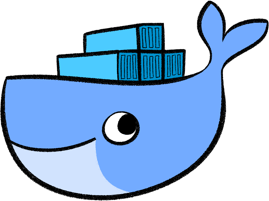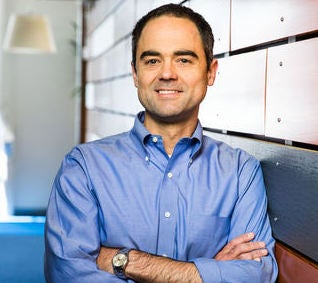November 2024 update: Announcing Upgraded Docker Plans: Simpler, More Value, Better Development and Productivity
To learn what’s new in Docker Desktop, read our Docker Desktop release series.
—
In November 2019 Docker announced our re-focusing on the needs of developers. Specifically, we set out to simplify the complexity of modern application development to help developers get their ideas from code to cloud as quickly and securely as possible. We’ve made a lot of progress since delivering against our public roadmap, including shipping Docker Desktop support for Apple M1 silicon, providing image vulnerability scanning for individuals and teams, delivering more trusted content via Docker Verified Publisher partnerships with more than 100 ISVs, and a whole lot more.
The Magic of Docker Desktop
In particular, to enable developers to spend more time building apps, less time on infrastructure, we’re investing heavily to ensure Docker Desktop continues to magically remove the complexities of installing, securing, and maintaining Docker Engine, Kubernetes, Compose, BuildKit, and other modern app development tools for Mac and Windows desktops. This includes installing and maintaining a Linux VM in the native hypervisors, automatically configuring networking between the VM, the local host, and remote hosts, and transparently bind mounting files into local containers. Our own Ben Gotch dug into the details of the magic in a recent blog post.

Community Support for Docker Subscription Updates
Our focus on this mission – investing in developers and reducing complexity – was the driver of the Docker subscription updates we announced on Aug 31, 2021. The overwhelming, positive support from our community, both individual developers and businesses, who recognize the value Docker provides has been humbling and encouraging. These community members see the updated terms for what they are – a means for us to sustainably scale our business and continue delivering delightful Docker experiences to all developers. To share just a few examples:




While the above are just a few of the community members who expressed their support, we are thankful to everyone who has responded and supported us, each in their own way.
Accelerating New Features in Docker Desktop
In fact, the support has been so overwhelmingly positive that we’re able to accelerate our investment and delivery of several highly-requested Docker Desktop features in our public roadmap:
- Docker Desktop for Linux (“DD4L”). DD4L is the second-most popular feature request in our public roadmap, as organizations aspire to provide a consistent, productive, and secure development environment across their Mac, Windows, and Linux desktops. Docker Desktop for Linux will be available to all developers through the free Docker Personal and paid Docker Pro, Team, and Business subscriptions. If you’re interested in early access please sign-up for our developer preview program.
- Docker Desktop Volume Management. Released in June 2021, Docker Desktop Volume Management is proving popular with our Docker Pro and Docker Team users. Developers love the GUI-based visibility and tools for local container volumes, as it helps them avoid local storage surprises and simplifies container volume management. With the overwhelming support we’re receiving, we’re able to make Docker Desktop Volume Management available to all developers in Docker Personal.
- Docker Compose v2.0 GA. Completely re-written from Python to Go and installed, configured, and maintained with Docker Desktop, Docker Compose v2.0 answers several needs of developers, including integrations with AWS and Azure, support for Apple M1 silicon, and support for desktop GPUs. Beta released in June 2021, GA release at the end of October.
It’s been a very encouraging couple of weeks after our subscription updates announced Aug 31, 2021. We are grateful to the Docker community for its support, which is allowing us to invest faster and further in Docker Desktop features for all developers. As we do so, we want to ensure we continue focusing on what’s important to YOU, so please participate in our public roadmap discussions early and often.
Let’s go build, ship, and run!
